As we slowly move toward the gate of Purgatory, we are given more and more hints as to the differences between this part of the Medieval Christian Worldview as seen through Dante the Poet’s eyes and our own modern world. It is in some ways a polar opposite of the Inferno, and yet there are dialectical parallels here and in Paradiso that will inform and enlighten as we compare and contrast the Cantos with each other. This is what continues to feed so many of us who return to the Commedia time and time again.
What a lovely beginning we have as Canto VII continues from Canto VI without missing a beat. The two poets from Mantua embrace in celebration of a shared home city. What a remarkable change this is from Farinata’s fierce demand of Dante’s family legacy when they meet in Inferno Canto X:
40 When I stood at the foot of his [Farinata’s] tomb
Com' io al piè de la sua tomba fui,
41 he looked at me a moment. Then he asked,
guardommi un poco, e poi, quasi sdegnoso,
42 almost in disdain: 'Who were your ancestors?'
mi dimandò: "Chi fuor li maggior tui?"
43 And I, eager to obey, held nothing back,
Io ch'era d'ubidir disideroso,
44 but told him who they were,
non gliel celai, ma tutto gliel' apersi;
45 at which he barely raised his eyebrows
ond' ei levò le ciglia un poco in suso;
46 and said: 'They were most bitter enemies
poi disse: "Fieramente furo avversi
47 to me, my forebears, and my party --
a me e a miei primi e a mia parte,
48 not once, but twice, I had to drive them out.'
sì che per due fïate li dispersi."
All that is shared here is hatred and dismissal of those whom he believes are beneath him, even though they are from the same city. Unlike Farinata, the reaction of Sordello and Virgil is of respect and comradeship and acceptance. Indeed, the opening couplet was so admired by Boccaccio in The Decameron that he used it verbatim as part of the tale of the mother Beritola in Decameron 2 – 6 – 96. She celebrates finding her son with Dante the Poet’s description in Canto 7:
1 Once the courteous and joyful greetings
Poscia che l'accoglienze oneste e liete
2 had been repeated a third time and a fourth…
furo iterate tre e quattro volte,
Respect for the other without a need to build up oneself is all through the Purgatorio. Sordello’s embrace of Virgil, once he actually learns that here is the greatest poet of his age, simply completes the honor that was being shared merely as a brother. In Purgatorio, those on the journey are learning to move out of the self-referent sphere that defines the Inferno. It is telling, therefore, that Virgil now shares more of himself than at any other time. In this Canto, Dante the Pilgrim is never mentioned. At all. If some have wondered why Cato is included in Purgatory while Virgil is kept in Hell, we might have one hint here: Virgil takes center stage and seems to enjoy it.
We learn here as well that unlike in the Inferno, there is a rhythm to the journey here, day and night matter. Dante the Pilgrim and Virgil plowed ahead through the Inferno, only stopping to talk or when they were stymied by hateful guards at the City of Dis or the fierce Giants. They moved on and on with a vengeance. But now, they are unable to travel once the sun [God’s Grace] is gone from the sky. Yes, one could MOVE if one cannot stay still, but that will only result in losing ground on one’s spiritual journey toward Paradise. To everything there is a time and a season. Yes, one must climb and suffer in order to cleanse one’s heart. But one must also take time to rest, recover and become, in fact, Mary who chose the better part, sitting at the feet of Jesus in contemplative presence while Martha remained bustling and busy. [Luke 10:38-42]
Of course there is a need in the spiritual journey for goal-driven hard work, to sacrifice and study and measure one’s progress and follow in obedience. But there is also the necessity to simply sit in silence and hear the still small voice of God. I love the fact that here in Purgatory, rest is mandated. Here one can dream. Here one can sit and sing with others. Here one must wait upon the Lord. I have found that the statement “God cannot drive a parked car” to be profoundly damaging to the spiritual life. And truth to tell, it is rooted deeply in many traditions of the Western Church in Christianity.
82 Seated in the grass and flowers, I saw
"Salve, Regina" in sul verde e 'n su' fiori
83 souls not visible from beyond the sunken valley.
quindi seder cantando anime vidi,
84 'Salve Regina' was the song they sang.
che per la valle non parean di fuori.
Another lesson learned as we move toward the gate of Purgatory is that one is not alone and will never progress without the community. There is no sense of the solipsistic soul such as we had in the Inferno, where even Farinata shared a tomb with many others, but refused to acknowledge their presence. Here, the pilgrims sing together, travel together, rest together. Repentance must be a communal experience because sin affects and destroys the community. Sin cannot simply be surrendered by one person alone, but forgiveness must be asked of those who have been wounded by the betrayal. Yes, confession is crucial and God in Jesus Christ is part of this process, but so is the entire community of faith. Dante the Poet makes that clear as people help each other, travel together, suffer with and for each other. This is the shared air of love now.
We are also reminded that we are in a monastic world, where the hours of monastic worship are part of Purgatory. Monasteries were part of Dante’s world, with one in Florence [Fra Angelico’s monastic community], and many more dotting the countryside. In fact, monasteries often served as Inns for travelers, who then joined the community in their prayers while they were there. The Salve Regina is sung at Vespers, as the sun goes down, both in Florence and in Purgatory. Monasteries followed the Medieval Opus Dei is the “Work of God” which is to gather eight times a day to sing and pray the Psalms, to serve one another and to ask for repentance. Here we are in the world of ritual that is guided by the Word of God and is shared by all those who are on the same journey. It is a hard lesson for the 21st century, to hear that according to Dante the Poet, one cannot be a Christian by oneself. No, we don’t need to sing the Psalms eight times a day, but there is a real assumption here that one will lose one’s way spiritually without a community of faith and a guide to follow. As I’ve mentioned earlier, my fear is that we in the modern world follow blind guides, and prefer to travel alone. I must return time and again to these wise texts and to the community of faith so I do not lose my way.
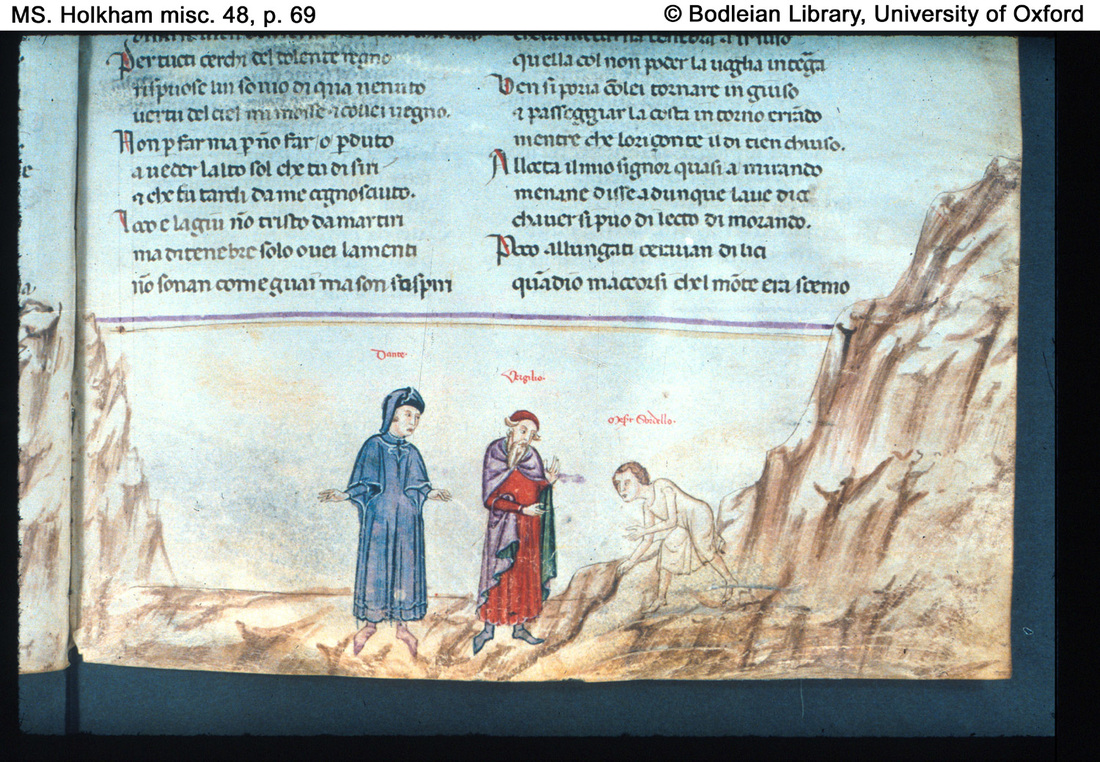
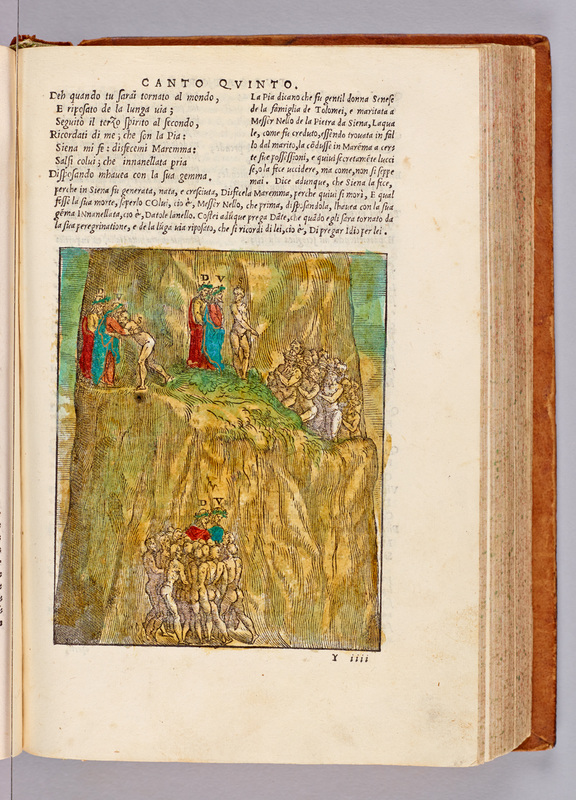
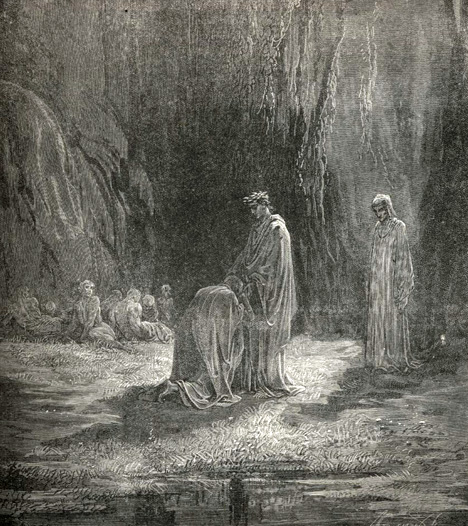
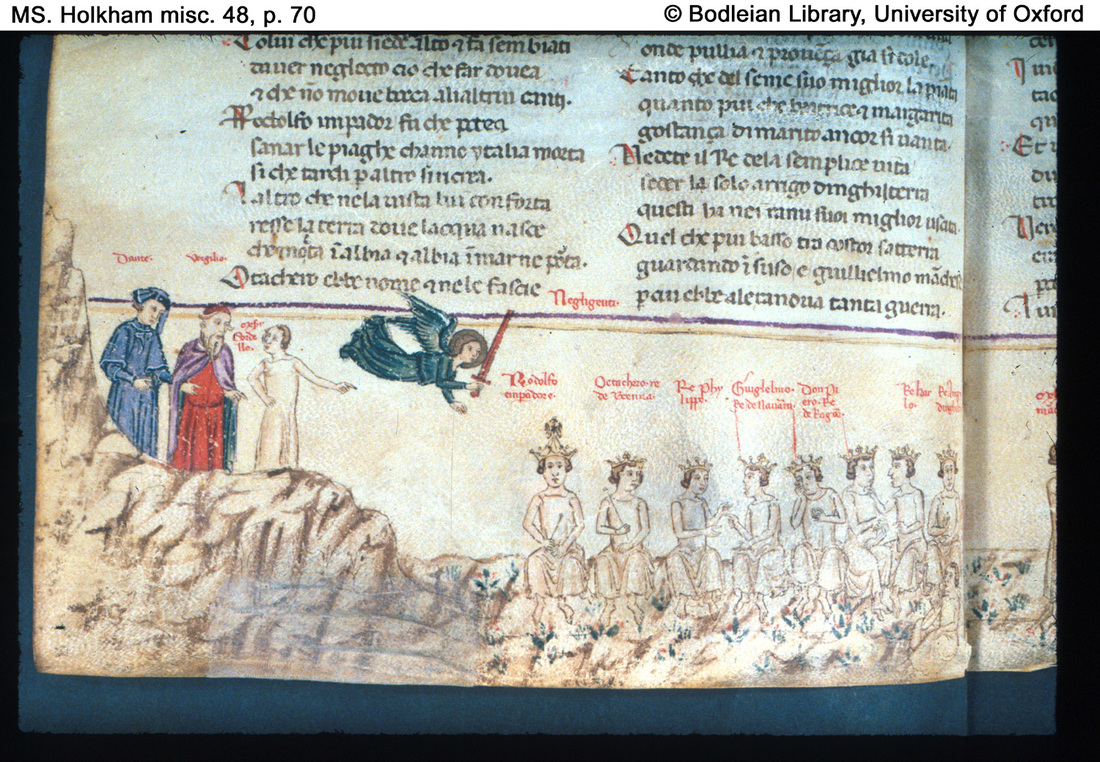
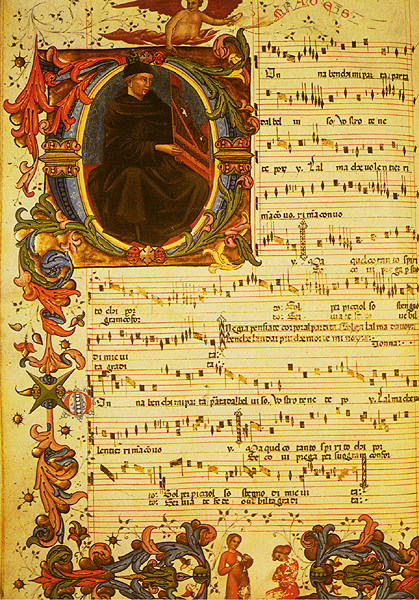
 RSS Feed
RSS Feed
